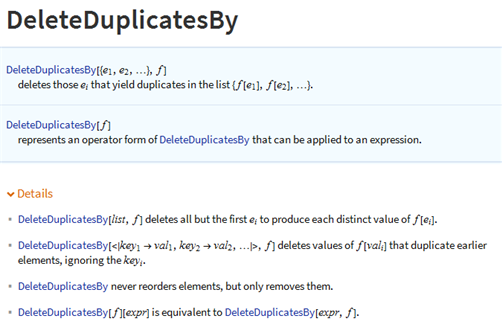I have a list of sets and some of them are equal in the sense of mathematics, but are ordered differently. How can I remove those elements from my list?
For example, the set
S=Tuples[{1, -1}, {2, 3}]
contains {{1,1,1},{1,1,-1}} and {{1,1,-1},{1,1,1}}. I want only the first of them.
This means that I want to eliminate from a set of matrices those with the same set of lines, but ordered in a different way.
The code have to work with any set generated through Tuples. (I my case, a small set of 9 x 9 matrices)

